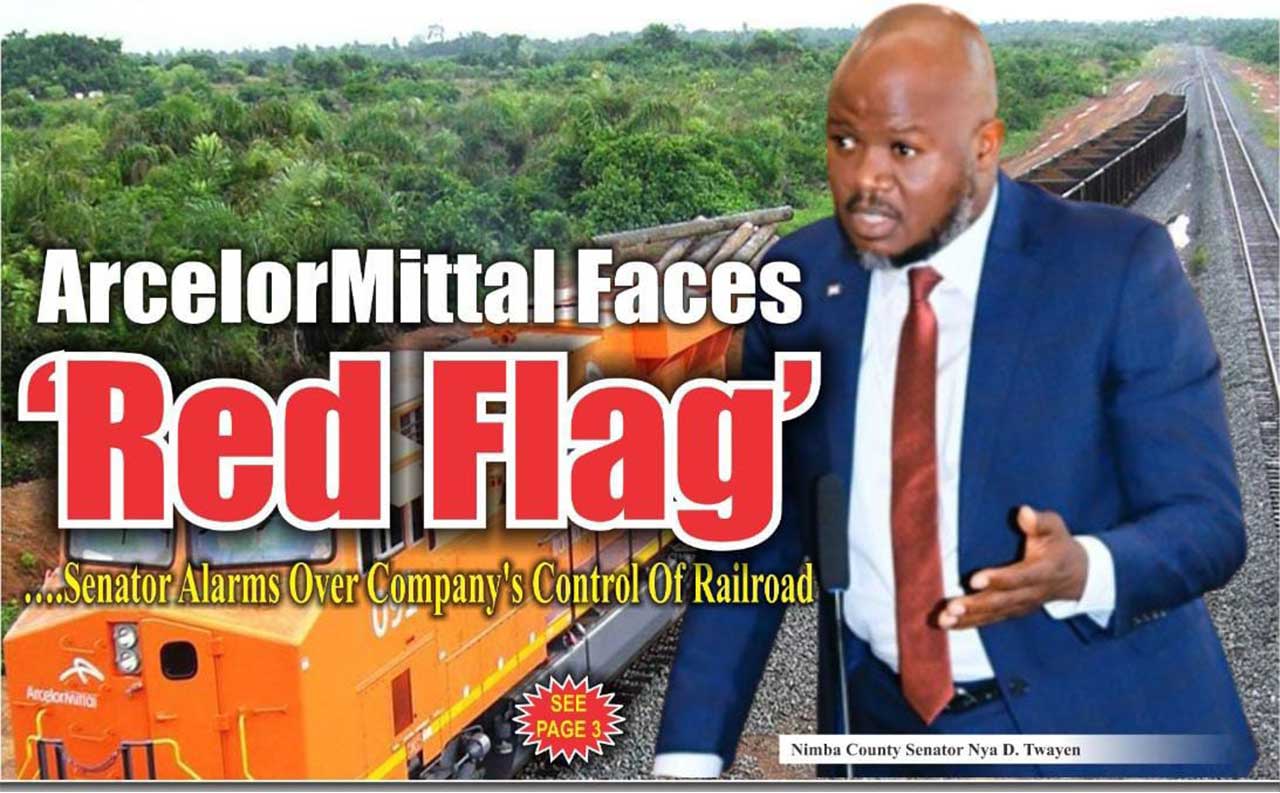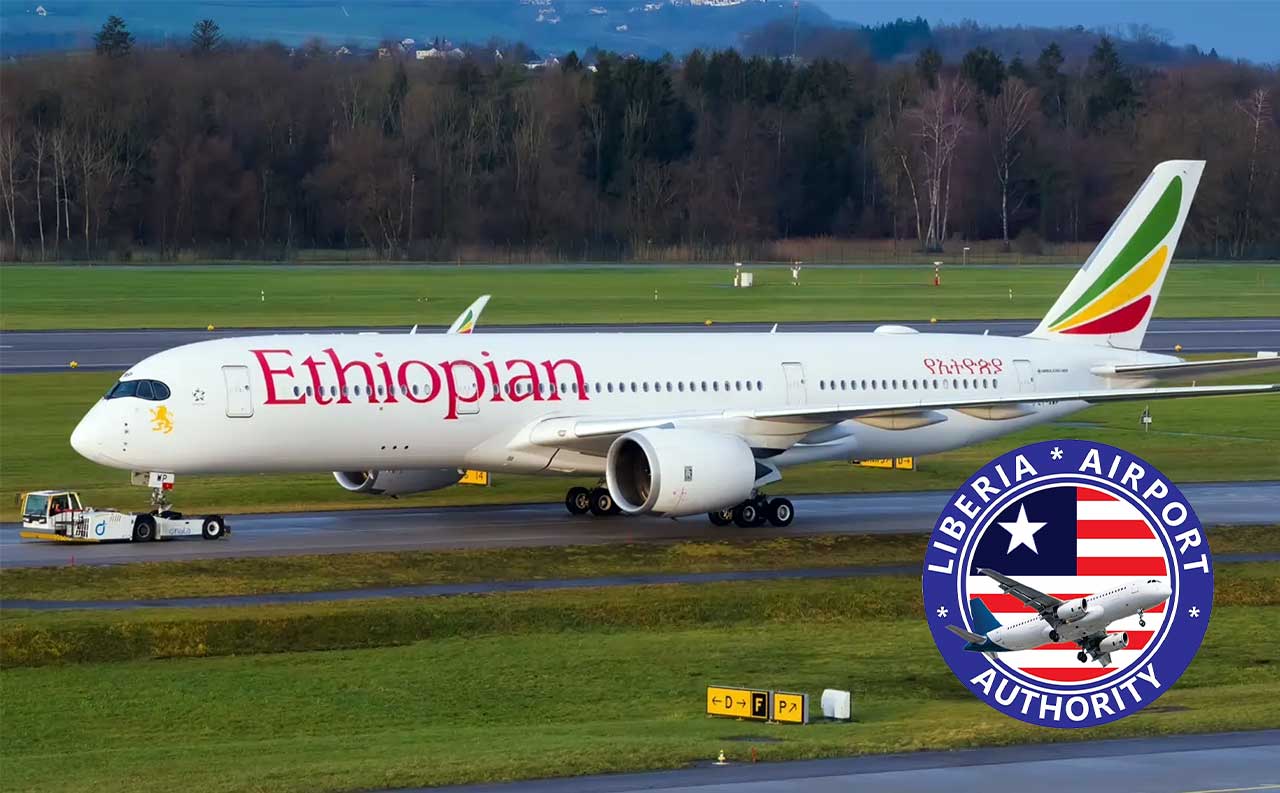Nimba County Senator Nya D. Twayen has raised a ‘red flag’ over a proposed amendment to ArcelorMittal Liberia (AML) Mineral Development Agreement (MDA), warning that it could grant the company control over Liberia’s national railroad system and Buchanan Iron Ore Port. According to Senator Twayen, the 54th Legislature in 2023 rejected a 25-year renewal of the AML concession, citing significant flaws in compliance and governance. A joint committee report highlighted these shortcomings, recommending strict conditions that must be met before any ratification could proceed.
The committee indicated growing unease over the definition of the concession area. Article 3, section (d)(2) of the proposed amendment stipulates that the government must ensure that the concession area, along with assets and facilities, including the railroad and Buchanan port, are free of encumbrances. However, the committee found discrepancies between the amendment and the 2000 Minerals and Mining Law.
Under Liberia’s mining law, a concessionaire must declare production areas within exploration zones. The undeclared portions of the old LAMCO concession area revert to the government. AML, however, has been relying on outdated agreements that contravene these legal requirements, a situation the committee warned could undermine national sovereignty over the country’s resources.
The committee recommended that the definition of the concession area be updated to align with the 2000 Minerals and Mining Law, with all undeclared portions returning to government control. Buchanan Iron Ore Port, currently made available for AML’s operations, should remain state property and be accessible to potential investors. Senator Twayen explained that AML’s proposed amendment would grant the company monopolistic control over Liberia’s rail and port infrastructure.
He added, “The amendment would allow AML to block other operators from expanding infrastructure or using port and rail facilities without AML’s consent, creating a near-exclusive operational advantage.” Twayen further said other users seeking to expand rail or port capacity would face severe restrictions. He stressed that any expansion must avoid unreasonable interference with AML’s operations, a term AML itself would define. “This raises concerns about fairness and economic opportunity for other Liberian operators and investors,” the Nimba Senator frowns.
The amendment also allows AML to control multi-user agreements for the rail system, effectively giving it authority to set rules for all other users. According to the committee, this could prevent other operators from competing or contributing to Liberia’s economic growth through infrastructure development.
Senator Twayen emphasized that the amendment could delay or limit government oversight. The proposed amendment grants AML the exclusive right to expand railroad capacity, including an additional 15 million metric tons per annum (MWMTPA) beyond the ongoing expansion. However, the government’s authority to authorize third-party expansions would be restricted, effectively reducing Liberia’s sovereignty over its infrastructure.
Furthermore, AML is expected to make a $55 million non-refundable payment to the government in installments as part of the additional expansion, yet the committee warned that the economic gains to Liberia could be far greater if the railroad were managed on a multi-user basis.
The committee also highlighted the importance of social contributions to counties affected by AML operations. It recommended increasing the county social development fund from $3 million to $5 million and ensuring that housing, road rehabilitation, and water projects are delivered without waiting for the new amendment.
AML has previously committed to constructing or renovating 1,800 housing units, but has completed fewer than 300. The committee insists that the National Housing Authority oversee a comprehensive plan to deliver the remaining units. The committee urged AML to allocate 50% of all unskilled and semi-skilled jobs to residents of affected communities, ensuring youth and local citizens benefit directly from the company’s operations.
Senator Twayen warned that AML’s proposed monopoly over rail and port infrastructure could deny Liberia and its people the full economic potential of these assets. Limiting third-party access reduces transit fee revenue, local job opportunities, and contracts for Liberian companies.
The committee recommended that Liberia retain ownership of the railroad and Buchanan port while structuring them for non-discriminatory multi-user access. This approach would allow multiple operators to construct and manage transportation activities on equal terms, benefiting the Liberian economy.
Passenger and general freight services on the railroad are also at stake. While such services could benefit local communities and broader economic development, AML has no obligation under the amendment to provide these services. Any government-proposed amendments would still require AML’s consent.
The committee stressed the need for AML to subscribe to international best practices for environmental, social, operational, and governance standards. This would safeguard Liberia’s interests and ensure sustainable management of its resources and infrastructure. Under the proposed amendment, an independent facilitator would be appointed to resolve disputes between AML and other eligible users, but ultimate authority still favors the company. Senator Twayen warned that this could lead to prolonged delays in implementing infrastructure projects beneficial to Liberia.
The committee also highlighted potential conflicts with the 2020 Treaty between Liberia and Guinea, stating that exclusive rights granted to AML could violate provisions ensuring equitable treatment of Guinean and Liberian operators, undermining regional cooperation and legal commitments.
Senator Twayen argued that Liberia could realize far greater economic benefits if the rail and port systems were operated on a transparent, multi-user basis. This would allow fair competition, encourage investment, and ensure that the country maximizes revenue from its natural resources.
AML’s control over rail and port expansion could also hinder Liberia’s long-term industrial growth. Restricting access prevents other companies from establishing operations, reducing potential foreign direct investment, and limiting economic diversification. The committee called for clear amendments to ensure that rail and port operations are regulated in a way that prevents monopolistic practices. Equal access for all eligible users would permit Liberia to harness the full economic potential of these critical assets.
Senator Twayen warned that passing the amendment as it currently stands would threaten Liberia’s economic sovereignty, limit infrastructure development, and concentrate benefits in the hands of a single operator. He called for urgent legislative action to revise the amendment in line with national interests. The senator urged fellow lawmakers to ensure that Liberia’s railroads and Buchanan port remain under government ownership, structured for fair, non-discriminatory multi-user access.



